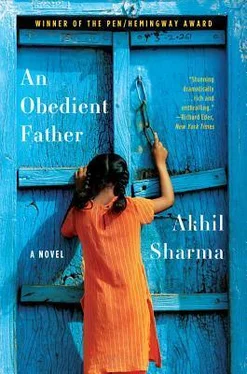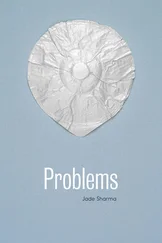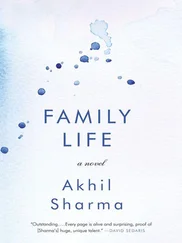My office is in a low white building that used to be a school. A dirt field circles it and a wall surrounds all this. Lately the wall had been lathered with political posters and painted with the giant lotuses of the fundamentalist Hindu BJP and the open hand of Rajiv Gandhi's Congress Party. For those of us who were involved in raising money and votes, the appearance of these signs of the coming election had created a sense of nervous festivity
The building itself is dark and musty. When I entered that morning, the sounds of typewriters and of voices came from departments like Hindi or science, where people were already planning for next year. In the physical education department no one even makes a pretense of working during the summer. We were almost proud of our laziness. We joked, "What can be done today can certainly be done tomorrow."
The department's four assistant education officers shared one large room with four desks, four iron armoires behind the desks, and four ceiling fans. Mr. Gupta had his own room down the hall from us.
Mr. Mishra was in the office, and he was asleep, bare feet on his desk and a handkerchief over his eyes to block the light.
"Mr. Mishra," I said, assuming Mr. Gupta's husky voice, "the public expects so little from its servants."
"It's finally learning." He tugged the handkerchief off and smiled. There was a graciousness to his round pockmarked face that
reminded me of a silver teapot. "Mr. Karan! I only arrived this morning from Bihar," he said. "Pritam and I were planning to come by the afternoon train yesterday, but we wanted to spend more time with our son. I haven't even bathed." He brought his feet down and sat up.
"How was your grandson's naming?" I asked, taking the chair from him. Mr. Mishra was very proud of his son, an Indian Administrative Service officer, and took every opportunity to talk of his successes.
"Amazing! You always think IAS officers are powerful, but it's hard to understand what it means for one man to be head of justice, the police, and the civil service. Two hundred people came. Every person who has any business of importance with the government tried to get invited. And those who didn't, probably worried that my son might be unhappy with them."
"I assume your son didn't have to pay for the whole celebration."
Mr. Mishra continued smiling, but his voice became irritated at the suggestion of bribery. "It was expensive," he said.
I felt embarrassed. Mr. Mishra and I had worked together for many years but became friends only when he visited me in the hospital while I recovered from my heart attack. Because Mr. Mishra did not accept bribes, I had thought he looked down on those of us who did. I also believed he was smarter and more generous than I was, and this made him especially irritating. During the conversations we had in the hospital, I realized that he was one of those people who love to gossip but are too well mannered to initiate such chatter. Our friendship was built on this insight, upon my leading conversations where I sensed he wanted to go but was too polite to go on his own.
Mr. Mishra asked, "What news?"
"Inspections, files, giving grants. Last week a young man, maybe twenty-six, came to me and said he wanted to open a school and needed a thousand square meters of land. I said you have to go to a different department and deposit a hundred forms before you'll get one meter on government discount. So he pushes two ten-thousand-
rupee packets toward me." I slid my hands slowly across the surface of the desk toward Mr. Mishra. To delight him, I sometimes exaggerated my crimes. "I had to say, 'Put it away or I'll call the police.' I've never seen him before and he's giving money like that. For a day or two, I was so certain the corruption people were after me, I could hardly eat."
Mr. Mishra snorted and shook his head.
"Oh! Last week a monkey went into the women's latrines," I said. "The ones down the hall. There were three typists inside. They see the monkey and begin screaming. The monkey begins screaming, too." I made the sounds of the women and the monkey screeching. "One woman runs out of the bathroom. And she shuts the door behind her. Shuts it and holds on to the doorknob. By now everyone has come to see what's happening. The screams are still going on." I started laughing. "The monkey has begun flushing the toilets." I pretended I was jerking the toilet chain. Mr. Mishra joined my laughter. "I have to pull the first woman's hands off the doorknob. One of the other women runs out. And she shuts the door and holds on. I tell her to open it and she says, 'If I do, the monkey will bite me.' Now the woman left inside is weeping. I open the door. The woman runs out. She's been bitten on her arm, her leg, her stomach. The monkey didn't leave till the hall was empty."
"Human nature," Mr. Mishra said. As he laughed, he leaned over one side of his chair.
"The needle for the rabies injection is a foot long." In my anxiety to please him, I had been talking faster than normal.
When our chortling stopped, Mr. Mishra asked, "Is there an inspection today? My stomach says, 'Feed me.' " Every school we were responsible for had to be inspected twice a year to see if government regulations were being followed. For us, these occasions were something close to a party. The home economics department of the school would spend all day cooking an elaborate lunch for us. Everywhere we went in the school, we would be met with obsequiousness.
Mr. Mishra's gentle corruption renewed my confidence in our
friendship. "Father Joseph's school," I said, and rubbed my hands for him to see. "And tonight is the wedding reception for Mr. Gupta's son. We can fill up for the next three days."
Narayan, the driver I always used, was sitting on the building's front steps drinking tea from a glass and reading a Spider-Man comic book. He was a short Brahmin in his late thirties who shaved his head and wore a blue uniform every day, even though drivers aren't required to wear a uniform.
"Narayanji, we are ready to go," Mr. Mishra said.
"Is the thief coming?" Narayan asked, glancing up at me standing beside Mr. Mishra.
Neither of us answered for fear it would encourage his insults. Mr. Mishra bent and adjusted the rubber bands that held up his socks. Narayan finally stood and walked ahead of us to the jeep.
Narayan and I had been friendly till I became Mr. Gupta's man. We still shared a small business of renting out the education department's jeeps at night and on holidays. Our friendship ended because Narayan had expected to grow rich from my new position, but since nearly all the benefits the position bestowed flowed directly to me, he felt cheated. He relieved this disappointment by insulting me whenever he could. Lately he had begun to claim falsely that I owed him fourteen hundred rupees from some complex embezzlement of the education department's diesel.
Our office is near Delhi University, and on our way to the inspection, we went through Revolution Square, where last winter several college students had set themselves on fire to protest V P. Singh's increase in caste quotas.
As we entered the square, Narayan snorted and said, "Rajiv Gandhi's sons." The outrage over their deaths had led to Rajiv Gandhi's overthrow of V P. Singh and Chandrashekar becoming Prime Minister. This was the first thing he had said since we got in the jeep, and I think he said it because he knew how much I had been moved by the actions of those foolish boys.
"Be kinder," I said, leaning over the front seat. "They didn't know better."
"How smart do you have to be? Even I know a few thousand government jobs don't matter."
"Don't be an animal," I said. "Laughing at young boys dying."
"Call me an animal, and I'll make you walk."
In the way that some people get religious with old age, over the last few years I had become sentimentally political. The young men's actions reminded me of the days when I cut telegraph wires to slow the British.
Читать дальше












